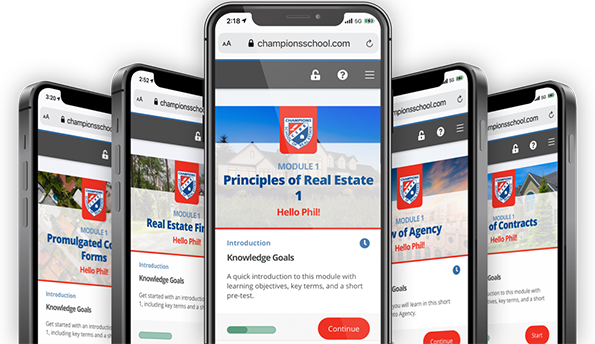
There are many ways to begin your career in real estate development if you're interested. These include building relationships and gaining relevant certifications. There are many online communities that will allow you to meet people from your industry. It comes down ultimately to what interests your most.
Relationship building
Relationships are key if you want to be successful in real estate development. Brian Wilson, a realty developer, stated that "you should focus on building relations and networking." People will do business with those they trust and know. It's easy to develop relationships with people that will become your business partners. This will make it easier for you to succeed in real estate investment.
The traditional job of a project manager is to deal with contractors and vendors. A developer's role, however, is slightly different. The developer must oversee the work of other consultants, including architects, general contractors, and engineers. A relationship builder is essential in order to develop strong working relationships between contractors and consultants.

Education
If you're looking to start a real estate business, education in real estate development is essential. It requires teamwork, stakeholder engagement, as well as a strong entrepreneurial spirit. The best developers do not shy away from getting dirty and are deeply rooted in their communities. While it is possible to study online, hands-on experience can always be better than self-study. It is crucial to gain a thorough understanding of the industry through an interactive program like that offered by Clemson.
MRED is an inter-disciplinary curriculum that covers relevant topics to the real estate industry. It integrates legal and economic principles with topics such as urban design, market analysis, and history. Students can choose electives that fit their interests. The program also requires that students do an internship in the real estate industry.
Experience
Real estate development requires both skills and experience. This includes planning and organizing projects and budgets, analyzing market trends and demography, and planning construction and marketing. For a successful real estate developer to be successful, they must be able work with clients and employees in order to produce a quality product.
There are three main stages in real estate development: pre-development, construction, and post-development. These stages require knowledge on different types and types of real estate. Experience in sales and marketing is also essential for a successful developer.

Certificates
Real estate certifications and designations can be useful tools for those who are interested in entering the real estate industry. But they can be costly. To be eligible for these credentials you must have relevant experience and complete courses. Online classes and certificates can be found in real property finance and development.
You can become a more profitable real estate professional by obtaining real estate certifications. These courses are taught and supervised by industry professionals. These courses will give students the knowledge they need and allow them to hear from experts. A number of accredited institutions can give you your certificate, including the University of San Diego's Division of Professional & Continuing Education. The faculty consists of professionals with both academic as well as professional backgrounds.
Geographic focus
Real estate development is a business that requires you to identify your geographical focus. It is also important to decide what product you will sell. Your market will be able to tailor your work if you know your area of focus. One example is to concentrate on condominiums and single-family homes. This allows you to narrow down your geographic reach and focus on one particular area or city.
FAQ
How much will my home cost?
It depends on many factors such as the condition of the home and how long it has been on the marketplace. Zillow.com reports that the average selling price of a US home is $203,000. This
Do I need flood insurance?
Flood Insurance protects you from flooding damage. Flood insurance can protect your belongings as well as your mortgage payments. Learn more about flood coverage here.
What should I look for in a mortgage broker?
A mortgage broker helps people who don't qualify for traditional mortgages. They look through different lenders to find the best deal. This service is offered by some brokers at a charge. Some brokers offer services for free.
How much will it cost to replace windows
The cost of replacing windows is between $1,500 and $3,000 per window. The exact size, style, brand, and cost of all windows replacement will vary depending on what you choose.
What's the time frame to get a loan approved?
It all depends on your credit score, income level, and type of loan. It generally takes about 30 days to get your mortgage approved.
What should I do before I purchase a house in my area?
It depends on how long you plan to live there. Start saving now if your goal is to remain there for at least five more years. However, if you're planning on moving within two years, you don’t need to worry.
Should I rent or own a condo?
Renting is a great option if you are only planning to live in your condo for a short time. Renting saves you money on maintenance fees and other monthly costs. The condo you buy gives you the right to use the unit. You are free to make use of the space as you wish.
Statistics
- The FHA sets its desirable debt-to-income ratio at 43%. (fortunebuilders.com)
- 10 years ago, homeownership was nearly 70%. (fortunebuilders.com)
- This means that all of your housing-related expenses each month do not exceed 43% of your monthly income. (fortunebuilders.com)
- Some experts hypothesize that rates will hit five percent by the second half of 2018, but there has been no official confirmation one way or the other. (fortunebuilders.com)
- Private mortgage insurance may be required for conventional loans when the borrower puts less than 20% down.4 FHA loans are mortgage loans issued by private lenders and backed by the federal government. (investopedia.com)
External Links
How To
How to Manage a Rent Property
Renting your home can be a great way to make extra money, but there's a lot to think about before you start. We'll show you what to consider when deciding whether to rent your home and give you tips on managing a rental property.
Here's how to rent your home.
-
What are the first things I should consider? Take a look at your financial situation before you decide whether you want to rent your house. If you have outstanding debts like credit card bills or mortgage payment, you may find it difficult to pay someone else to stay in your home while that you're gone. It is also important to review your budget. If you don't have enough money for your monthly expenses (rental, utilities, and insurance), it may be worth looking into your options. You might find it not worth it.
-
What is the cost of renting my house? Many factors go into calculating the amount you could charge for letting your home. These factors include location, size, condition, features, season, and so forth. Prices vary depending on where you live so it's important that you don't expect the same rates everywhere. The average market price for renting a one-bedroom flat in London is PS1,400 per month, according to Rightmove. This would translate into a total of PS2,800 per calendar year if you rented your entire home. This is a good amount, but you might make significantly less if you let only a portion of your home.
-
Is it worth the risk? Although there are always risks involved in doing something new, if you can make extra money, why not? Be sure to fully understand what you are signing before you sign anything. Not only will you be spending more time away than your family, but you will also have to maintain the property, pay for repairs and keep it clean. You should make sure that you have thoroughly considered all aspects before you sign on!
-
Is there any benefit? You now know the costs of renting out your house and feel confident in its value. Now, think about the benefits. Renting your home is a great way to get out of the grind and enjoy some peace from your day. No matter what your choice, renting is likely to be more rewarding than working every single day. You could make renting a part-time job if you plan ahead.
-
How do you find tenants? Once you decide that you want to rent out your property, it is important to properly market it. Listing your property online through websites like Rightmove or Zoopla is a good place to start. You will need to interview potential tenants once they contact you. This will help you evaluate their suitability as well as ensure that they are financially secure enough to live in your home.
-
How can I make sure I'm covered? You should make sure your home is fully insured against theft, fire, and damage. You will need to insure the home through your landlord, or directly with an insurer. Your landlord will typically require you to add them in as additional insured. This covers damages to your property that occur while you aren't there. This doesn't apply to if you live abroad or if the landlord isn’t registered with UK insurances. In these cases, you'll need an international insurer to register.
-
Sometimes it can feel as though you don’t have the money to spend all day looking at tenants, especially if there are no other jobs. But it's crucial that you put your best foot forward when advertising your property. A professional-looking website is essential. You can also post ads online in local newspapers or magazines. A complete application form will be required and references must be provided. While some prefer to do all the work themselves, others hire professionals who can handle most of it. In either case, be prepared to answer any questions that may arise during interviews.
-
What do I do when I find my tenant. If there is a lease, you will need to inform the tenant about any changes such as moving dates. If you don't have a lease, you can negotiate length of stay, deposit, or other details. Keep in mind that you will still be responsible for paying utilities and other costs once your tenancy ends.
-
How do I collect rent? When it comes time for you to collect your rent, check to see if the tenant has paid. If they haven't, remind them. Any outstanding rents can be deducted from future rents, before you send them a final bill. If you are having difficulty finding your tenant, you can always contact the police. If there is a breach of contract they won't usually evict the tenant, but they can issue an arrest warrant.
-
How do I avoid problems? While renting out your home can be lucrative, it's important to keep yourself safe. Make sure you have carbon monoxide detectors installed and security cameras installed. It is important to check that your neighbors allow you leave your property unlocked at nights and that you have sufficient insurance. Finally, you should never let strangers into your house, even if they say they're moving in next door.